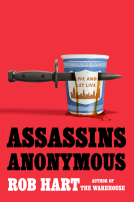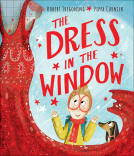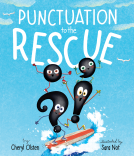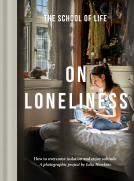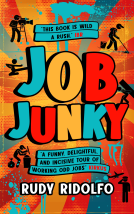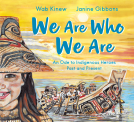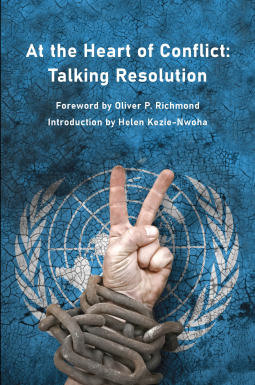
At the Heart of Conflict:
Talking Resolution
by Oliver P Richmond; Helen Kezie-Nwoha
This title was previously available on NetGalley and is now archived.
Send NetGalley books directly to your Kindle or Kindle app
1
To read on a Kindle or Kindle app, please add kindle@netgalley.com as an approved email address to receive files in your Amazon account. Click here for step-by-step instructions.
2
Also find your Kindle email address within your Amazon account, and enter it here.
Pub Date Jun 06 2025 | Archive Date Oct 13 2025
Aurora Metro Books | Supernova Books
Talking about this book? Use #AttheHeartofConflict #NetGalley. More hashtag tips!
Description
A ground-breaking new book that dares to bridge the divide between peacemakers and military strategists.
As the world reels from an unprecedented surge in destructive wars and international crises, a new and critically important book challenges conventional wisdom and asks: Can peace be built by dialogue alone? When is the use of force necessary? Is there cause for hope? With 20 unflinching first-person accounts, the book uniquely gives voice to both sides of the “conflict resolution debate” from seasoned UN negotiators and grassroots peacebuilders to intelligence experts and military veterans.
Foreword by Oliver P. Richmond
Introduction by Helen Kezie-Nwoha
Includes interviews with:
Victor Ângelo – Head of the United Nations Mission in the Central African Republic; Gershon Baskin – Israeli peace activist focused on Middle East peace and reconciliation; Nurcan Baysal – Human rights defender, author, and journalist; Saskia Binet – Middle East North Africa Coordinator for the Women’s International League for Peace and Freedom; Caroline Brooks – Senior Advisor on Conflict Management for Amnesty International and many more.
Afterword by Jonathan Cohen
Advance Praise
“At the Heart of Conflict: Talking Resolution is a profoundly hopeful book. In these pages, we hear directly from practitioners who have not only witnessed conflict but have actively worked to transform it. Their voices bring a rare depth and texture to our understanding of mediation and peacebuilding — grappling with the political conditions on the ground and reflecting on how those moments fit into larger historical arcs. These accounts offer more than technical and political insight — they remind us that in the midst of violence and fragility, there are always individuals building bridges, nurturing resilience, and creating space for hope." - Dr Christine Cheng, War Studies, King's College London
‘A fascinating insight into the challenging world of conflict resolution that is likely to be as relevant tomorrow as it is today.’
-York Membery, writer and journalist, Sunday Times.
Marketing Plan
Online event with researchers Across Borders 16th May - Eventbrite
In person event at Quaker library and bookshop, London - Eventbrite
In person event at Books on the Rise, London in Sep/Oct date tbc
Publicist
Podcast
social media
blog tour
reviews
Available Editions
| EDITION | Paperback |
| ISBN | 9781913641429 |
| PRICE | £18.99 (GBP) |
| PAGES | 296 |
Links
Available on NetGalley
Average rating from 4 members
Featured Reviews
 Reviewer 503414
Reviewer 503414
This was a very good book. It was well-written. I would highly recommend it.
Thank you to NetGalley and the publishers for the ARC.
 Debbie J, Reviewer
Debbie J, Reviewer
Very detailed important book with interview style approach. Interviews of a number of negotiators. Packed full of information and insights particularly suited to people learning the art of negotiation. Thank you to the author. Thank you to #netgalley and the publisher for an ARC.
 Lisa D, Reviewer
Lisa D, Reviewer
This was a really good book and I've never read anything else like it. There are almost 2 dozen people interviewed, all of whom work in modern conflict resolution. The first thing that I loved was that, while I'm often anxious about the state of the world, I'm grateful for people who try to negotiate if not an end to conflict, at least a calming. The second biggest thing was that it helped me understand some of the practical parts of what they do.
The individuals in the book worked in different areas and there was just a ton of interesting information and anecdotes.
 Sandra M, Reviewer
Sandra M, Reviewer
A good read for those who would take and interest in conflict resolution in the complex world. Of the 20 contributors they were unanimous agreement, even the former military ones, that negotiation was the way to conflict resolution. That said, it takes two (or more) to sit down and negotiate. Increasingly we see not ‘negotiation’ but demands put forward from one side – normally the belligerent – so negotiation goes nowhere.
Readers who liked this book also liked:
L.M Montgomery
Children's Fiction, Comics, Graphic Novels, Manga, Teens & YA
Yuzuru Kuki
Biographies & Memoirs, Children's Nonfiction, Comics, Graphic Novels, Manga
JUNO
Arts & Photography, Comics, Graphic Novels, Manga, Travel
Silvia Moreno-Garcia
Historical Fiction, Literary Fiction, Sci Fi & Fantasy
We Are Bookish
Sci Fi & Fantasy, Teens & YA




